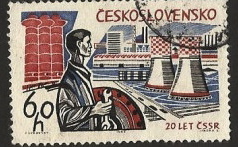Dr. Beverley Butler (UCL)
‘From Heritage Syndromes to Refugee Syndromes’
Can certain heritage forms – whether imagined as historical or sacred and/or as otherwise salient sites – exert efficacies capable of transformative encounter? Can such loci affect cure and healing and/or turn otherwise ‘normal’ people ‘mad’? Phrased differently again – can heritage be rendered redemptive and/or pathological – therapeutic or traumatising?
My paper fore-fronts the phenomenon of the ‘Jerusalem Syndrome’ – the term used to describe the ‘episodes’ experienced by some visitors to Jerusalem who overwhelmed by their encounter with this iconic place undergo radical transformation. Affecting visitors in varying degrees of intensity, some (often with little previous religious conviction) come to see themselves as a specially ordained prophetic, messianic messenger who, after following ritual preparation often identify with a key religious figure (typically as featured in the Abrahamic religions) and feel compelled to deliver a redemptive message by which the world will undergo transformation and cure through the articulation of a vision of a ‘just’ future. The Jerusalem Syndrome has been regarded by some as both a sudden and an extreme form of religious expression and as synonymous with intense experiences of ‘wellbeing’ however it has featured in the pages of the British Psychiatric Journal as a serious psychiatric concern and designated as a ‘pathological illness’ synonymous with harmful experiences of ‘psychotic decompensation’ and ‘depersonalisation’. I use the ‘Jerusalem syndrome’ and its subsequent critiques as a means to raise questions about the broader articulation of ‘heritage syndromes’ in which wellbeing/ illbeing, cure/ harm, suffering and happiness exist in close proximity. I use ethnographic research including work undertaken with Palestinian refugees in Jordan to explore how such groups are encountering this complex and often potentially harmful act of engaging with heritage as a resource by which to re-construct self and world, to recover repertoires of resilience, cosmologies of care and coping strategies synonymous with attempts to define, control and sustain future wellbeing and secure justice.
Organiser: Professor Sonu Shamdasani (UCL)

